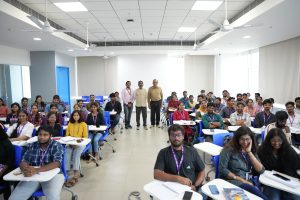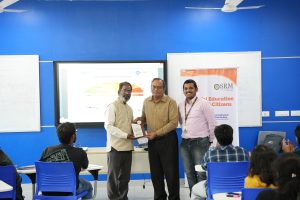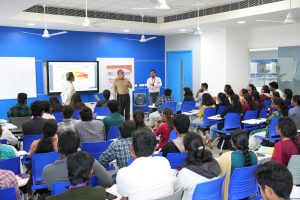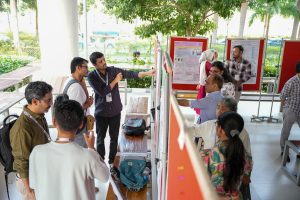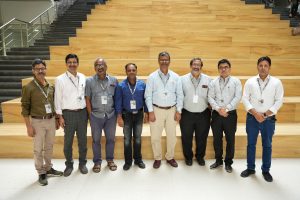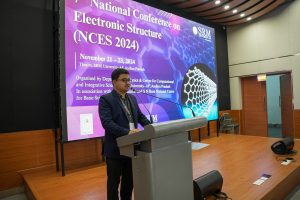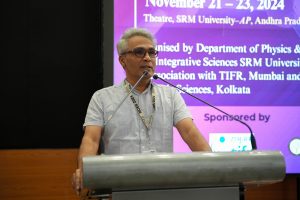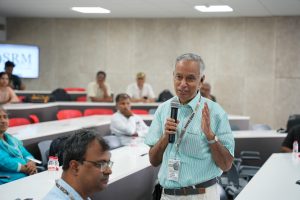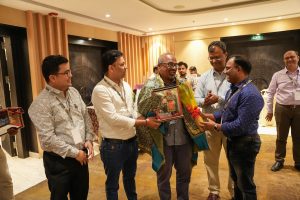Industry 4.0 Readiness: Transforming the Future of Manufacturing
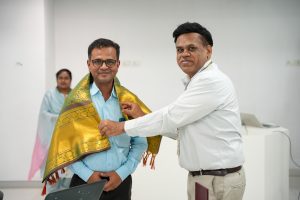 The Department of Mechanical Engineering concluded its 5-day intense Faculty Development Programme on Smart Manufacturing and Industry 4.0 organised with the objective of highlighting Smart Manufacturing to boost efficiency and sustainability, fostering collaboration among researchers, academicians, and industry experts and improving manufacturing practices and sustainability through innovation.
The Department of Mechanical Engineering concluded its 5-day intense Faculty Development Programme on Smart Manufacturing and Industry 4.0 organised with the objective of highlighting Smart Manufacturing to boost efficiency and sustainability, fostering collaboration among researchers, academicians, and industry experts and improving manufacturing practices and sustainability through innovation.
The FDP kick-started with a plenary lecture on Smart Manufacturing/Industry 4.0, followed by interactive sessions led by eminent speakers. The FDP witnessed industrial and academic stalwarts such as Prof. Ramesh Babu, IIT Chennai; Mr Amit Baddi, Samprama Digitech, Pune; Dr Rishi Relan, Siemens, Delhi; Prof. Kaushal Desai, IIT Jodhpur to name a few. The resource persons, experts in their specific realms, primed over 100+ participants from both in and around the varsity.
The participants had the opportunity to learn about big data analytics and machine-to-machine communication, real-time data collection and processing using IoT, and seamless integration of manufacturing system components. The FDP encouraged extensive discussions and knowledge sharing sessions, bestowing a pivotal opportunity for participants, educators and industry practitioners to immerse themselves in the future of manufacturing.
The FDP also offered the participants significant opportunities to contribute to the evolving manufacturing landscape, ultimately enhancing productivity, efficiency, and sustainability in their respective fields. Academic colloquiums such as these prove to be significant in readying the next cohort of engineers and technology enthusiasts to tackle the problems of tomorrow.
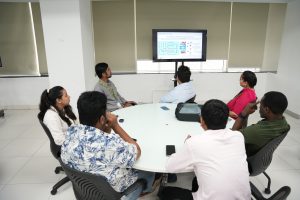
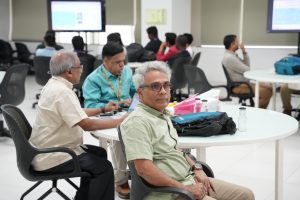
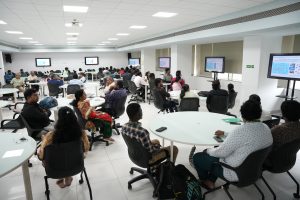
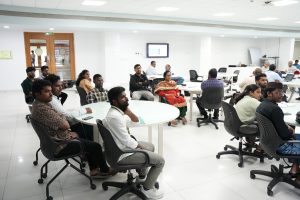
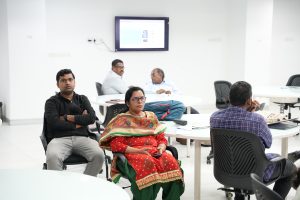
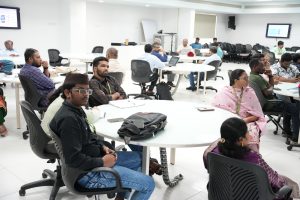
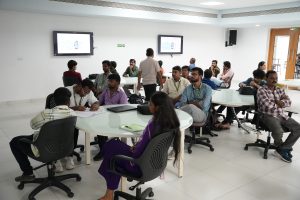
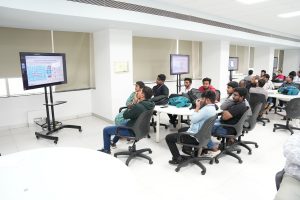
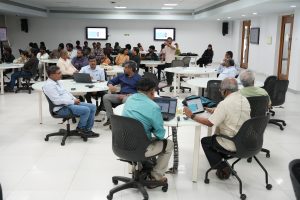
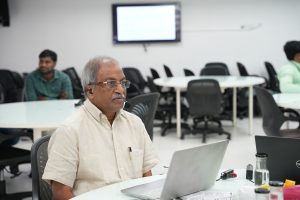
- Published in Departmental News, FDP, Mechanical Engineering NEWS, News
Student-Teacher Collaboration Culminates in IEEE Transactions
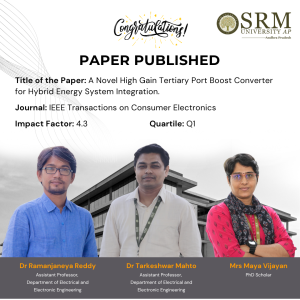 The increasing demand for sustainable energy solutions has led to the development of hybrid energy systems that integrate renewable sources like solar photovoltaic (PV) systems and fuel cells (FC). The practical applications of the research in sectors such as electric vehicles and residential power systems, contribute to a more reliable and sustainable energy future contributing to a more reliable and sustainable future.
The increasing demand for sustainable energy solutions has led to the development of hybrid energy systems that integrate renewable sources like solar photovoltaic (PV) systems and fuel cells (FC). The practical applications of the research in sectors such as electric vehicles and residential power systems, contribute to a more reliable and sustainable energy future contributing to a more reliable and sustainable future.
Abstract of the research.
This paper introduces novel high-gain tertiary port boost converter (HGTPBC) designed for hybrid energy sources such as solar photovoltaic (PV) and fuel cells (FC). The converter is employed with dual input sources by facilitating modular converters and accomplishes a high step-up voltage gain by virtue of a voltage multiplier in a DC microgrid, where the prosumers can have an islanded operation. The proposed topology allows home appliances to be powered by multiple energy source without the need for a large storage unit. Key features include continuous input current, reduced normalized voltage stress on switches, expandability for multiple input sources and independent source control. The independent control facilitates the standalone operation with single source during source failure or absence. To evaluate the converter performance, a thorough steady-state analysis, both with and without consideration of nonidealities is carried out. Detailed comparisons with existing converter topologies highlight the advantages of the proposed converter. Moreover, the loss distribution and efficiency analysis of proposed converter are presented and found to be 91.59% efficiency at rated power. Theoretical aspects are validated through hardware testing on a 100W laboratory prototype.
Explanation of the Research in layperson’s terms.
The proposed converter is a 100W DC-DC converter topology used in hybrid energy systems applications and electric vehicular applications in DC microgrid. The converter can accept two sources like fuel cell and solar PV system to supply the load and even can be extended for a greater number of sources. Thus, it is suitable for various applications of traction vehicles, household electrifications etc. It exhibits a lower switch stress and higher step-up conversion gain.
Practical Implementation and Social implications
The features include high step-up conversion gain, independent control possible, reduced normalised switch voltage stress. And flexible operation based on PV availability. It is most suitable for electric vehicles, Unmanned ariel vehicles, and hybrid energy systems etc. It improves the reliability of the renewable energy source by the incorporation of the second fixed source, fuel cell. It can be used in various on-grid and off-grid applications like home, hospitals, offices, and educational institutions, especially where source reliability is necessary. The major advantage is the reduction in the size of the source due to higher step-up gain and ease of control between the sources.
Future Research Plans
We are working towards the development of efficient and ultra-high gain bidirectional converters for various applications on DC microgrids. That should be able of reducing the source ratings and to integrate multiple sources to improve the grid reliability. Design and implementation of bidirectional multi-port converters for various applications of DC microgrids, such as renewable and hybrid storage integration are the scope of our research.
The link to the article- https://ieeexplore.ieee.org/document/10772206
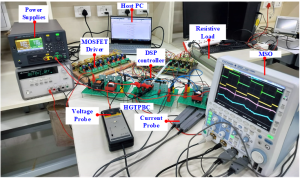
- Published in Departmental News, EEE NEWS, News, Research News
Promoting Financial Literacy with NISM
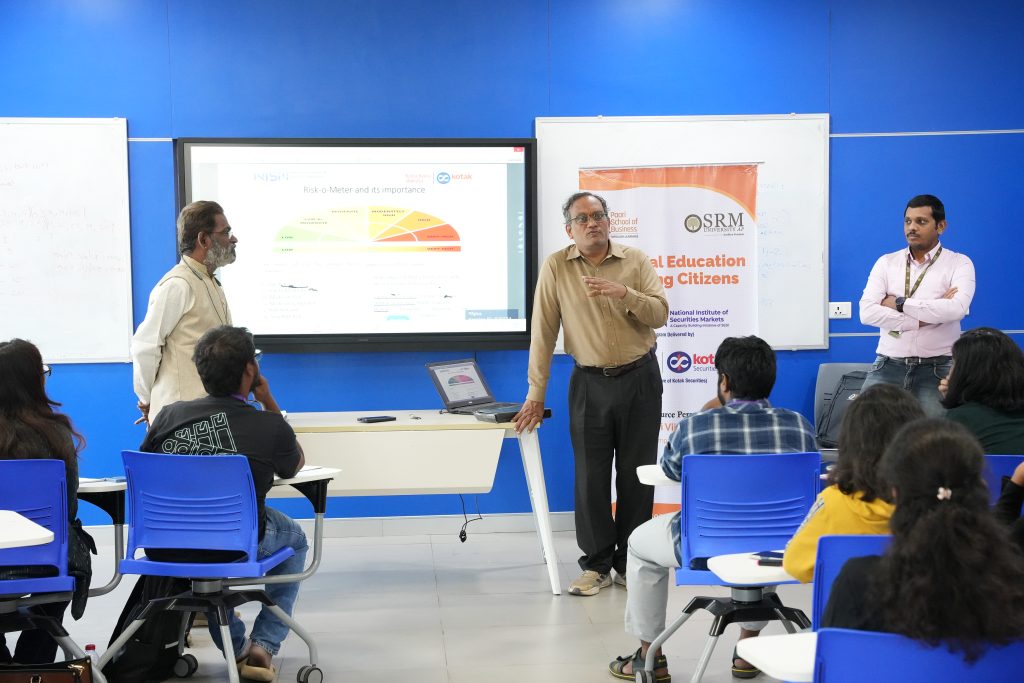
In a major initiative to promote financial literacy, the Paari School of Business organised a full-fledged Financial Education Programme under the Kona Kona Shiksha CSR Project, conducted by the National Institute of Securities Markets (NISM), on November 23 – 24 and 27 – 28, 2024. Mr Chilkuri Vijay Kumar, an NISM-empanelled resource person, conducted the programme, which saw enthusiastic participation from more than 140 MBA students.
The 10-hour programme covered, among the most important themes, career opportunities within the securities market, some investment fundamentals, primary and secondary markets, mutual funds, and various investor protection mechanisms. Besides lectures, dynamic discussions were conducted with insight into current happenings to introduce participants to the world of financial planning and investment strategies.
Mr Vijay Kumar’s interactive sessions helped students gain deeper insights into the securities market and clarified their understanding of the risks and opportunities of investment. Distributing e-certificates and comprehensive reading materials added value to the learning experience.
The session has set the stage for creating financially informed and responsible citizens. This has further reinforced Paari School of Business’s commitment to providing industry-relevant education and helping its students achieve professional excellence.
- Published in Departmental News, News, Paari Current Happenings, paari-events
SRM AP Hosted the 7th National Conference on Electronic Structure
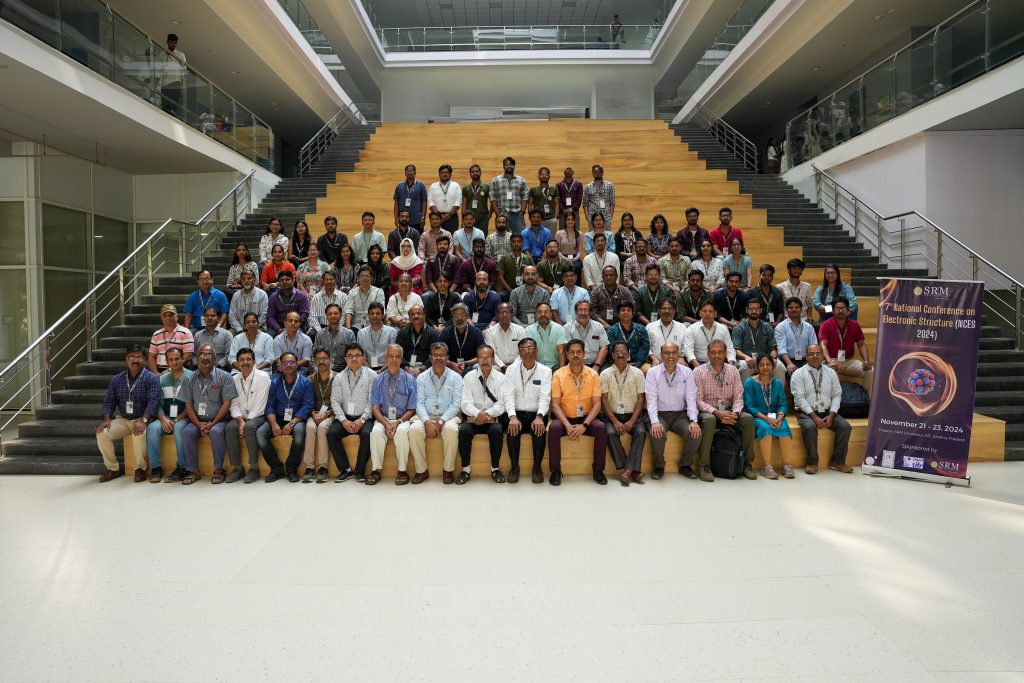
The 7th National Conference on Electronic Structure successfully concluded at SRM University-AP on November 21 – 23, 2024, under the aegis of the Department of Physics and the Centre for Computational and Integrative Sciences. The conference provided a dynamic platform for discussions and interactions on the recent advances in electron spectroscopy, microscopy, and related theoretical approaches to understanding the electronic structure of materials.
NCES was also aimed at capacity building in the field of electronic structure. Scientists, researchers, and scholars from universities and research institutes assembled to delve deep into research on electronic structure-related projects and works. Scientific discussions and invited lectures showcased insightful sessions by domain experts from India.
Out of forty poster participants, four poster winners were awarded a certificate of appreciation and Rs.3000/—each in recognition of their effort and dedication, contributing to their success.
Prof. Ranjit Thapa (Convenor), Prof. Kalobaran Maiti (National Convenor), and Prof. B R Sekhar (National Convenor) spoke about the significance of the event, which helped scholars know the importance of the NCES event in terms of fruitful scientific interactions and collaborations with each other.
The participants were also on a short tour around Undavalli caves and Kanak Durga Temple. The tour plan facilitated an informal platform for participants to communicate freely and network with others for long-term collaborations.
The 7th National Conference on Electronic Structure was an inspiring experience for all participants, encouraging research scholars to work in the field of electronic structure. The conference also facilitated a conducive environment for problem-solving and innovation.
- Published in Departmental News, News, Physics News, Research Events


